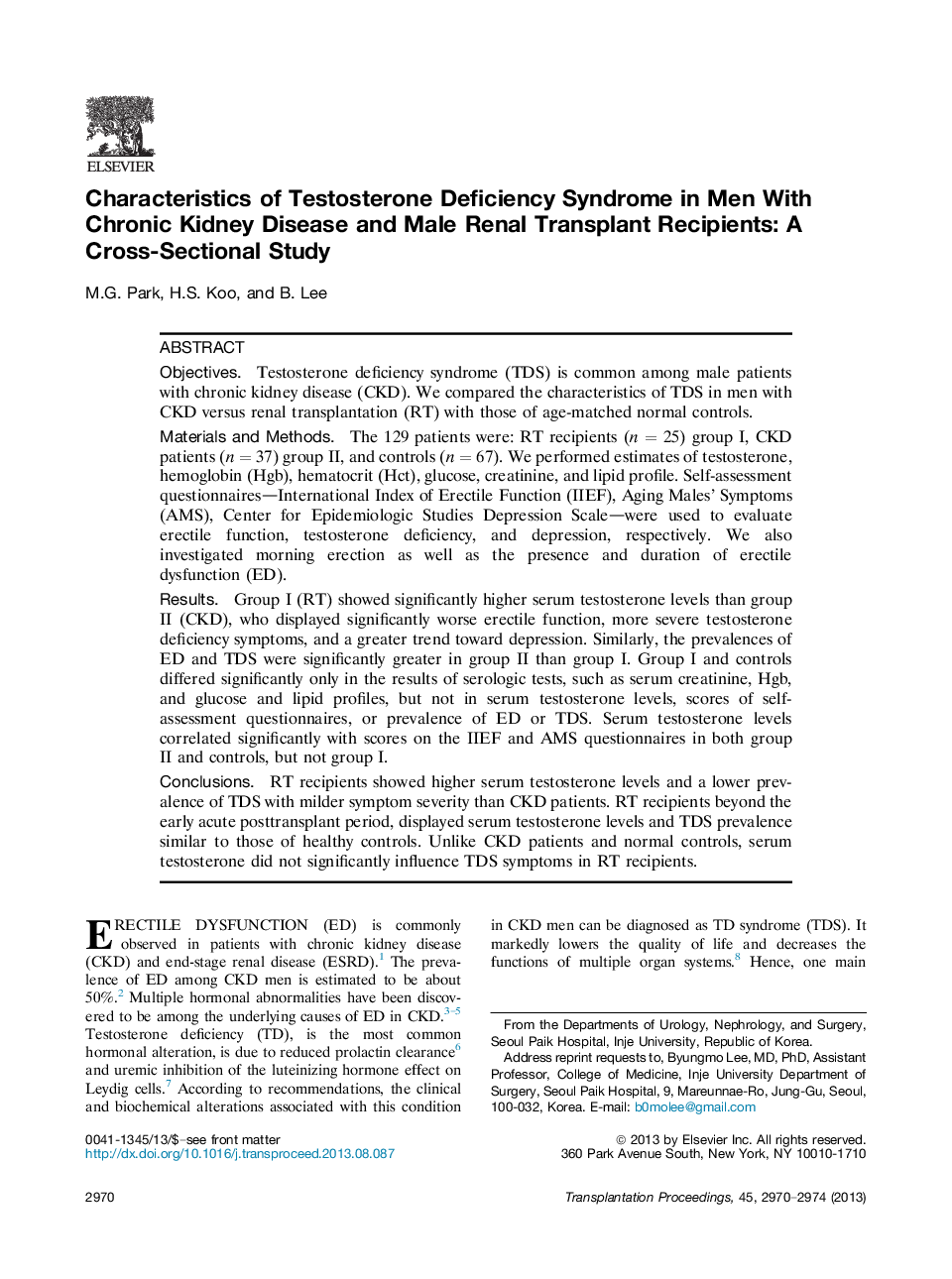| کد مقاله | کد نشریه | سال انتشار | مقاله انگلیسی | نسخه تمام متن |
|---|---|---|---|---|
| 6249921 | 1284572 | 2013 | 5 صفحه PDF | دانلود رایگان |
ObjectivesTestosterone deficiency syndrome (TDS) is common among male patients with chronic kidney disease (CKD). We compared the characteristics of TDS in men with CKD versus renal transplantation (RT) with those of age-matched normal controls.Materials and MethodsThe 129 patients were: RT recipients (n = 25) group I, CKD patients (n = 37) group II, and controls (n = 67). We performed estimates of testosterone, hemoglobin (Hgb), hematocrit (Hct), glucose, creatinine, and lipid profile. Self-assessment questionnaires-International Index of Erectile Function (IIEF), Aging Males' Symptoms (AMS), Center for Epidemiologic Studies Depression Scale-were used to evaluate erectile function, testosterone deficiency, and depression, respectively. We also investigated morning erection as well as the presence and duration of erectile dysfunction (ED).ResultsGroup I (RT) showed significantly higher serum testosterone levels than group II (CKD), who displayed significantly worse erectile function, more severe testosterone deficiency symptoms, and a greater trend toward depression. Similarly, the prevalences of ED and TDS were significantly greater in group II than group I. Group I and controls differed significantly only in the results of serologic tests, such as serum creatinine, Hgb, and glucose and lipid profiles, but not in serum testosterone levels, scores of self-assessment questionnaires, or prevalence of ED or TDS. Serum testosterone levels correlated significantly with scores on the IIEF and AMS questionnaires in both group II and controls, but not group I.ConclusionsRT recipients showed higher serum testosterone levels and a lower prevalence of TDS with milder symptom severity than CKD patients. RT recipients beyond the early acute posttransplant period, displayed serum testosterone levels and TDS prevalence similar to those of healthy controls. Unlike CKD patients and normal controls, serum testosterone did not significantly influence TDS symptoms in RT recipients.
Journal: Transplantation Proceedings - Volume 45, Issue 8, October 2013, Pages 2970-2974
